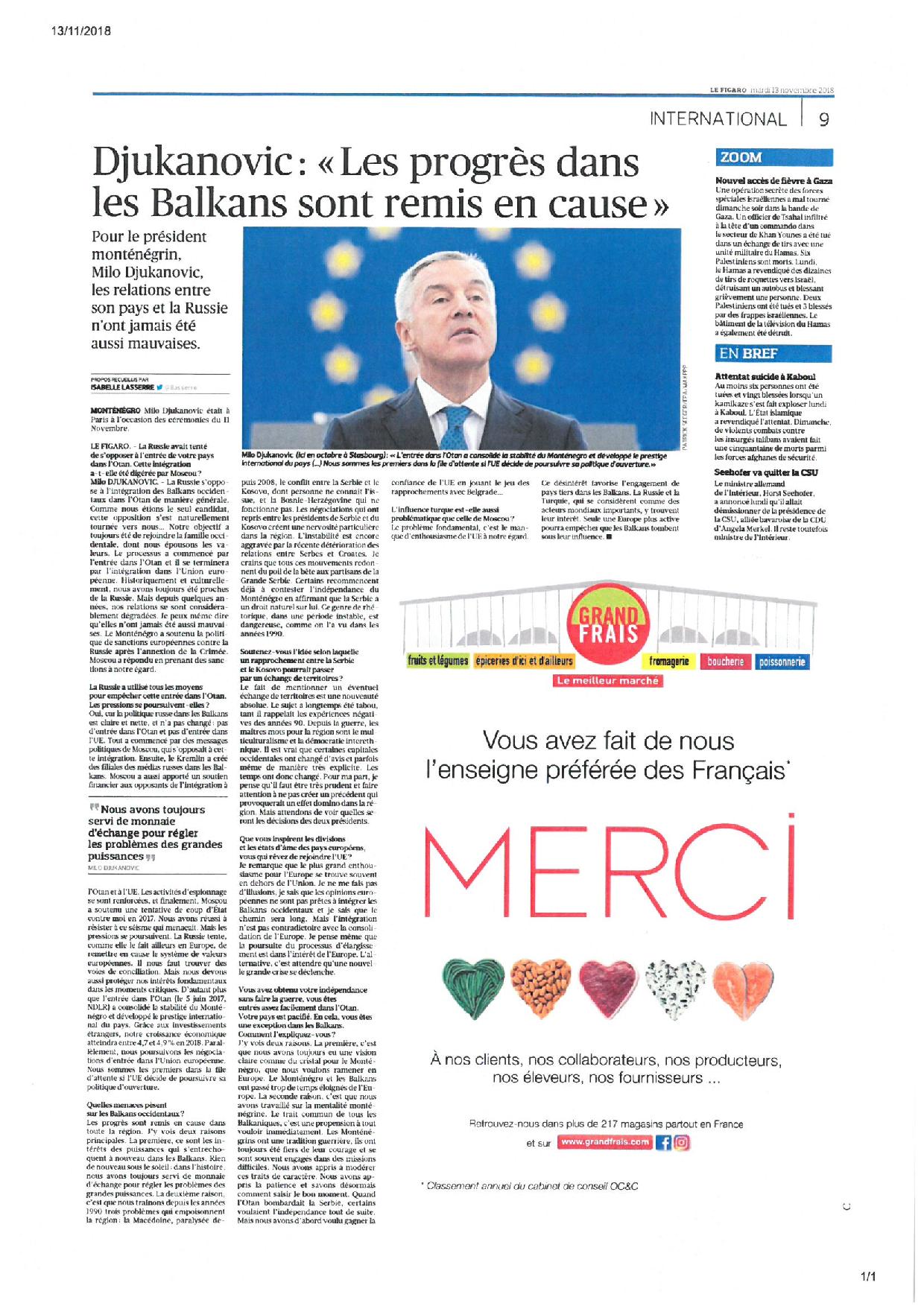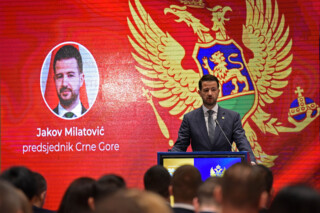The progress in the Balkans is at stake, said the President of Montenegro, Milo Đukanović, in an interview with the French news magazine ‘Le Figaro’ he gave during his stay in Paris to mark the 100th anniversary of the end of the First World War.
“The progress in the whole region is at stake. In my opinion, two main circumstances caused such a state of play. First refers to clashing interests of great forces in the Balkans, which is nothing new to us. The second thing is the fact we have been facing three problems that ruin the region since the ‘90s: Macedonia paralyzed since 2008, conflict between Serbia and Kosovo with no likely outcomes and dysfunctional Bosnia and Herzegovina,” Đukanović said.
As he added, fresh talks between the presidents of Serbia and Kosovo have incited nervousness in the region. “The instability has been encouraged by deteriorated relations between Serbia and Croatia. I’m afraid such circumstances would encourage supporters of Great Serbia. Some of them again started challenging the Montenegrin independence, by claiming that Serbia has had a natural right to Montenegro. Such allegations are dangerous in times of instability, which we all had an opportunity to witness in the ‘90s.”

On the idea of land swap between Serbia and Kosovo, Đukanović said “that’s an issue considered a taboo for a long time, as it reminded us of bad experiences from the ‘90s.” One must be cautious and watch not to cause a domino effect in the region, and we should wait to see the decisions of the two presidents, according to Đukanović.
Russia tried to prevent Montenegro’s accession to NATO. Đukanović emphasized that Russia generally opposes the integration of the Western Balkans into NATO.
Đukanović continued: “As we were the only candidate country, Russia naturally protested against our NATO membership …but, we have always wanted to join the Western family whose values we share. That process has started with the NATO membership and is going to finish with our accession to the European Union (EU). In terms of history and culture, we have always been close to Russia but relations between us have deteriorated considerably over recent years.”
President Đukanović also added that we must find ways for reconciliation.
“At the same time, we should protect our most significant interest in the critical moments, especially due to the fact that NATO membership (on 5 June 2017) fostered stability in Montenegro and contributed to its international prestigious reputation. Thanks to foreign investments, this year’s economic growth will range from 4.7% to 4.9%. And we are to continue the accession talks with the EU. If the EU decides to go on with the enlargement policy, we are first in line to join it,” Đukanović emphasized.




